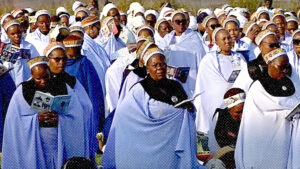In my ministry as a pastor, I meet a number of Christians who ask me questions about cults. And usually their most pressing question is this. “How should the Church rightly or appropriately respond to cults? If I am a Christian, or even a Christian leader like a pastor, and I know of a cultic group that is operating in the neighbourhood, what should be my appropriate attitude or response?”
How Should I Respond To Cults?
“Do I just ignore them as long as they are not part of my church or they are not stealing away my church members? Do I address them and if so, how do I address them? Should I just warn my members about them and tell them never to join their church and let them be? What is really the appropriate response to cults and false religious groups?
Three Wrong Reactions
There are a number of ways in which people or Christians today respond.
1. Clicking ‘Ignore’
One of them, of course, is the wrong way. That in most cases, Christians respond by clicking ‘ignore’. It’s because especially out of ignorance. So, they do not know much about the cultic group. And since they don’t know this particular group, they choose to ignore it because they don’t know how to engage them.
2. Being Indifferent
I have also met Christians who will become indifferent to the cultic group. The ‘I don’t care’ attitude’. “As long as they are not in my Church, as long as no one I know among my loved ones is involved, who cares what they believe or what they say?”
3. Wrongful Attack
So, you have believers who respond out of indifference and walk away. You have Christians who respond ignorantly for not knowing what the group believes. Either they misrepresent them, or they attack them wrongly, or they totally ignore them. But you also have those believers who respond rightly. And what is the right approach?
How To Fruitfully Engage Cults
The right approach would certainly be to find ways of fruitfully engaging them. But for you to engage them, you must know what it is that you yourself believe. You must know how different what they believe is from you. What we call discernment. As a Christian, you cannot only just be discipled, you must also be discerning.
As a Christian, you cannot only just be discipled, you must also be discerning.
Discernment: The Antidote To Deception
How do I discern the differences between biblical Christianity and what this group believes? And once I see that there are obvious differences that need to be addressed, how do I go about addressing these? Christian discipleship and discernment is the antidote for today’s deception.
So, what are some of those things you can do – as a Christian you need to do – in order to properly address cults or people who are involved in a cultic religious group?
Know What You Believe
Step number one, as I said earlier, has to do with discipleship. That you yourself must know what you believe. You must know the word of God. You must know why you believe what you believe. Because if you don’t know what you stand for, how can you even know whether what they are teaching is false or not?
When you’re confident in your own faith, it’s easy to communicate with people who disregard or distort what the Christian faith stands for.
Many Christians face a challenge of engaging people in cultic groups. Not because they don’t know what to say, but because they themselves are not sure of what they believe.
When you are confident in your own faith, it is very easy to communicate with people who either disregard or distort what the Christian faith stands for.
Learn What The Cult Stands For
But, number 2, you want to have knowledge of these cults. It’s one thing to know what the Bible teaches, it’s another thing to know what these cultic groups are teaching. For you to address their doctrines well – their methods of recruitment or their behavioural practices – you must have an idea what this cultic group stands for.
I am not saying that you must be an expert on cults. But you must at least have basics of understanding what this group is; identifying what it stands for, so that you may appropriately respond to it.
4 Steps: The Right Christian Response to Cults
So, in summary, what am I saying?
1. Identify The Cult
Number 1. Apart from knowing your Bible and being grounded in your own Christian faith, I am saying that you must be able to identify this group. What kind of cultic group is this? Is it a foreign one for instance or is it indigenous? Is it a cult of Christianity or is it maybe a biological cult or a psychological cult? Because there are several different types and categories of cultic groups.
The ability to identify it is step number 1 to giving you the confidence to address it.
2. Understand The Cult’s Claims & Practices
But number 2, beyond identification, you want to understand the group’s claims and practices. What is it that they claim to believe? What is it that they are practicing? Or how are they behaving? And by identifying those practices and claims – and seeing how they differ from Biblical Christianity – you are able to know how to address them or to help people that are involved in these groups.
3. Understand Christian Scripture Well
Number 3. You want to be sure that you are able to answer the claims and practices of these groups from Scripture and other sources. Many Christians, out of a lack of depth in their own Christian faith, fear to engage with people from cultic groups. Especially because they do not know the answers to the questions that members of these groups are asking.
Some members of these cultic groups are very well trained on how to recruit people; on how to evangelise them, on how to answer their questions. So, when you are a Christian and you do not have the answers to the questions they are asking, or you yourself do not even know the kind of questions you should be asking them, it is understandable that you will be scared to interact with them and to lovingly lead them back into biblical truth.
So, you must be able to, be in a position to, answer the claims and the teachings that they bring from Scripture and other sources.
4. Evangelise With Compassion
But number 4, you must be able to evangelise them. It’s one thing to identify them, it’s another thing to know how to understand them well. It’s another thing to be able to answer their claims from Scripture. But all the more another thing to know how to evangelise them. Evangelising them sensitively, evangelising them strategically, evangelising them scripturally, evangelising them with courage and compassion.
That as Christians, we are not just called to identify a group or to be able to know what they teach. But more importantly, we are called to evangelise them. To present the gospel of Jesus Christ in ways that are winsome; in ways that are convincing; in ways that are convicting, that are compelling; and yet ways that are very compassionate.
For us to be able to do that, we must know the word. What is it that we believe? We must know about the cults. Who are they? What do they teach? What do they stand for? And we must be prepared to identify them, to understand their claims, to seek to answer their questions and above all to evangelise them and hopefully bring them back into the good news of the gospel of Jesus Christ.









